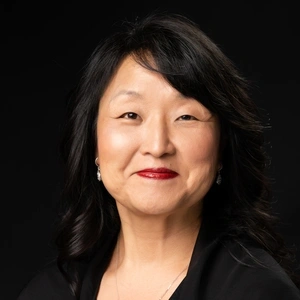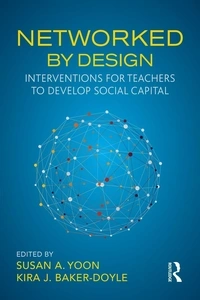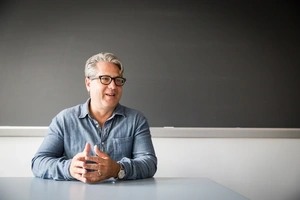Books
Yoon, S. A., & Baker-Doyle, K. (Eds.) (2018). Networked by design: Interventions for teachers to develop social capital. New York, NY: Routledge Press.
Journal Articles
Yoon, S. A., Miller, K., & Richman, T. (2020). Comparative study of high-quality professional development for high school biology in a face-to-face versus online delivery mode. Educational Technology & Society, 23(3), 68–80.
Yoon, S. A., Miller, K., Richman, T., Wendel, D., Schoenfeld, I., Anderson, E., & Shim, J. (2020). Encouraging collaboration and building community in online asynchronous professional development: Designing for social capital. International Journal of Computer-Supported Collaborative Learning, 15(3), 351–371.
Yoon, S. A., Miller, K., Richman, T., Wendel, D., Schoenfeld, I., Anderson, E., Shim, J., & Marei, A. (2020). A social capital design for delivering online asynchronous professional development in a MOOC course for science teachers. Information and the Learning Sciences, 1–16.
Lasky D., & Yoon, S. (2020). A creative classroom for everyone: An introduction to a small ‘c’ creativity framework. Thinking Skills and Creativity, 36, 1–9.
Baker-Doyle, K., & Yoon, S. (2020). The social side of teacher education: Implications of social network research for the design of professional development. International Journal of Educational Research, 101, 1–5.
Cottone, A., & Yoon, S. (2020). Improving the design of undergraduate biology courses toward the goal of retention: The case of real-world inquiry and active learning through metagenomics. Journal of Microbiology and Biology Education, 21(1), 1–10.
Yoon, S., Goh, S., Yang, Z. (2019). Toward a learning progression for understanding complex systems in science education. Complicity, 16(1), 1–19.
Yoon, S., Anderson, E., Elinich, K., Park, M., & Lin, J. (2018). How augmented reality, text-based, and collaborative scaffolds work synergistically to improve learning in a science museum. Research in Science and Technology Education, 3(36), 261–281.
Yoon, S., Goh, S., Park, M. (2018). Teaching and learning about complex systems in K–12 science education: A review of empirical studies 1995–2015. Review of Educational Research, 88(2), 285–325.
Yoon, S., & Hmelo-Silver, C. (2017). What do learning scientists do? A survey of the ISLS membership. Journal of the Learning Sciences, 26(2), 167–183.
Yoon, S., Koehler-Yom, J., Yang, L., Liu, L. (2017). The effects of teachers' social and human capital on urban science reform initiatives: Considerations for professional development. Teachers College Record, 119(4), 1–32.
Yoon, S., Anderson, E., Koehler-Yom, Evans, C., Park, M., J., Sheldon, J., Schoenfeld, I., Wendel, D., Scheintaub, H., Klopfer, E. (2017). Teaching about complex systems is not simple matter: Building effective professional development for computer-supported complex systems instruction. Instructional Science, 45(1), 99–121.
Yoon, S., Lin J., Anderson, E., & Elinich, K. (2017). How augmented reality enables conceptual understanding of challenging science content in a science museum: A case of Bernoulli’s Principle. Journal of Educational Technology & Society, 20(1), 156–168.
Yoon, S., Anderson, E., Klopfer, E., Koehler-Yom, J., Sheldon, J., Schoenfeld, I., Wendel, D., Scheintaub, H., Oztok, M., Evans, C., Goh, S. (2016). Designing computer-supported complex systems curricula for the Next Generation Science Standards in high school science classrooms. Systems, 4(38), 1–18. Retrieved from http://www.mdpi.com/2079-8954/4/4/38/html
Yoon, S., Elinich, K., Wang, J., Van Schooneveld, J., & Anderson, E. (2016). Scaffolding informal learning in science museums: How much is too much? Virtual Issue: Building Capacity for Research at the Intersection of the Learning Sciences and Informal Science Education. Science Education. Retrieved from http://onlinelibrary.wiley.com/journal/10.1002/%28ISSN%291098-237X/homepage/custom_copy.htm
Yoon, S., Anderson, E., Koehler-Yom, J., Sheldon, J., Schoenfeld, I., Wendel, D., Scheintaub, H., Klopfer, E., Oztok, M., & Evans, C. (2015). Design features for computer-supported complex systems learning and teaching in high school science classrooms. Journal of Research in STEM Education, 1(1), 17–30.
Yoon, S., Koehler-Yom, J., Anderson, E., Lin, J., & Klopfer, E. (2015). Using an adaptive expertise lens to understand the quality of teachers’ classroom implementation of computer-supported complex systems curricula in high school science. Research in Science and Technology Education, 33(2), 237–251.
Yoon, S., & Wang, J. (2014) Making the invisible visible in science museums through augmented reality devices. Tech Trends. 58(1), 49–55, 2014.
Yoon, S., Elinich, K., Wang, J., Van Schooneveld, J., & Anderson, E. (2013). Scaffolding informal learning in science museums: How much is too much? Science Education, 97(6), 848–877. Wang, J., & Yoon, S. (2013). Scaffolding visitors’ learning through labels. Journal of Museum Education, 38(3), 320–332.
Yoon, S., Elinich, K., Wang, J., Steinmeier, C., & Van Schooneveld, J. (2012). Learning impacts of a digital augmentation in a science museum. Visitor Studies, 15(2), 157–170.
Yoon, S., Elinich, K., Wang, J., Steinmeier, C., Tucker, S. (2012). Using Augmented Reality and Knowledge-Building Scaffolds to Improve Learning in a Science Museum. International Journal of Computer Supported Collaborative Learning, 7(4), 519–541.
Yoon, S. (2011). Using social network graphs as visualization tools to influence peer selection decision-making strategies to access information about socioscientific issues. Journal of the Learning Sciences, 20(4), 549–588.
Lasky, D & Yoon, S. (2011). Making space for the act of making: Creativity in the context of engineering design. Science Educator, 20(1), 34–43.
Baker-Doyle, K. & Yoon, S. (2011). In search of practitioner-based social capital: A social network analysis tool for understanding and facilitating teacher collaboration in a professional development program. Professional Development in Education, 37(1), 75–93.
Yoon, S., Liu, L., Goh, S. (2010). Convergent adaptation in small groups: Understanding professional development activities through a complex systems lens. Journal of Technology and Teacher Education, 18(2), 319–344.
Perna, L., Lundy-Wagner, V., Drezner, N., Gasman, M., Yoon, S., Bose, E. & Gary, S. (2009). The contribution of HBCUs to the preparation of African American women for STEM careers: A case study. Research in Higher Education, 50(1), 1–23
Yoon, S. (2008). Using memes and memetic processes to explain social and conceptual influences on student understanding about complex socio-scientific issues. Journal of Research in Science Teaching, 45(8), 900–921.
Yoon, S. (2008). An evolutionary approach to harnessing complex systems thinking in the science and technology classroom. International Journal of Science Education,30(1), 1–32.
Yoon, S., Pedretti, E., Bencze, L., Hewitt, J., Perris, K., & Van Oostveen, R. (2006). Improving elementary preservice science teachers’ self-efficacy beliefs through the use of cases and case-methods. Journal of Science Teacher Education, 17(2), 1–21.
Yoon, S., & Klopfer, E. (2006). Feedback (F) fueling adaptation (A) network growth (N) and self-organization (S): A complex systems design and evaluation approach to professional development. Journal of Science Education and Technology, 15(5-6), 353–366.
Klopfer, E., Yoon, S. , & Um, T. (2005). Teaching complex dynamic systems to young students with StarLogo. Journal of Computers in Mathematics and Science Teaching,24(2), 157–178.
Klopfer, E., Yoon, S., & Perry, J. (2005). Using palm technology in Participatory Simulations of complex systems: A new take on ubiquitous and accessible mobile computing. Journal of Science Education and Technology, 14(3), 285–298.
Klopfer, E., & Yoon, S. (2005). Developing games and simulations for today and tomorrow's tech savvy youth. Tech Trends,49(3), 33–41.
Refereed Proceedings
Yoon, S., Miller, K., Richman, T., Wendel, D., Schoenfeld, I., & Anderson, E. (2020). Comparative study of high-quality professional development for high school biology in a face-to-face vs. online delivery mode. Paper in the proceedings of the International Conference for the Learning Sciences, Nashville, TN. (Conference canceled.)
Reisman, A., Yoon, S., Anderson, E., Brown, T, Correnti, R., Ebby, C., &…Fishman, B. (2020). Designing online experiences to support teacher learning and professional development across subject areas. Symposium in the proceedings of the International Conference for the Learning Sciences, Nashville, TN. (Conference canceled.)
Matuk, C., Yoon, S., Polman, J., Amato, A., Barton, J., Bulalacao, N., &…Zellner, M. (2020). Data literacy for social justice. Symposium in the proceedings of the International Conference for the Learning Sciences, Nashville, TN. (Conference canceled.)
Cottone, A., Yoon, S., Shim, J., Coulter, B., & Carman, S. (2020). Investigating the development of data literacy through apt epistemic performance with elementary school students. Poster in the proceedings of the International Conference for the Learning Sciences, Nashville, TN. (Conference canceled)
Vogel, F., Jeong, H., Yoon, S., Haklev, S., Guillian, L. V., Abassi, N. G., &…Hmelo-Silver, C. (2019). Understanding CSCL through the lens of research syntheses. In the proceedings of the International Conference of Computer Supported Collaborative Learning, Lyon, France.
Yoon, S., Delgado, C., McKenna, T. J., Krajcik, J., Levites, L., & Sussman, A. (2019). The integration of cross-cutting concepts in three-dimensional learning. In S. J. Fick, J. Nordine, & K. W. McElhaney (Eds.), Conference proceedings of the Summit for Examining the Potential for Crosscutting Concepts to Support Three-dimensional Science Learning. Washington, D.C.: University of Virginia.
Yoon, S., Miller, K., Shim, J., Wendel, D., Schoenfeld, I., Anderson, E., et al. (2019). From face-to-face to online: Considerations for social capital design to scale science teacher access to high-quality PD. In the proceedings of the International Conference of Computer Supported Collaborative Learning, Lyon, France.
Shim, J., Yoon, S., & Noushad, N. (2019). Using a resource activation lens to understand classroom enactments of computationally-based science curricula. In the proceedings of the International Conference of Computer Supported Collaborative Learning, Lyon, France.
Bressler, D., Yoon., S., Miller, K., Shim, J., Wendel, D., Schoenfeld, I., et al. (2019). Using a MOOC for online professional development: An analysis of newer and experienced teacher perceptions. In the proceedings of the International Conference of Computer Supported Collaborative Learning, Lyon, France.
Miller, K., Yoon, S., Shim, J., Wendel, D., Schoenfeld., Anderson, E., et al. (2019). Teacher perceptions on collaborative online professional development for in-service teachers on a MOOC platform. In the proceedings of the International Conference of Computer Supported Collaborative Learning, Lyon, France.
Karumbaiah, S., Shim, S., Dabholkar, S., Yoon, S., Ye, A., & Chandy, B. (2019). Designing to improve in-service teacher learning in computational thinking using data practices.
Yoon, S., Goh, S., Yang, Z. (2019). In the proceedings of the International Conference of Computer Supported Collaborative Learning, Lyon, France.
Yoon, S., Anderson, C.W., Baker-Doyle, K., de Laat, M., del los Santos, E., Frank, K.A., et al. (2018). Networked by design: Interventions for teachers to develop social capital. Symposium in the proceedings of the International Conference of the Learning Sciences, London, England.
Yoon, S., Shim, J., & Noushad, N. (2018). Trade-offs in using mobile tools for promote action with socioscientific issues. Paper in the proceedings of the International Conference of the Learning Sciences, London, England.
Yoon, S., Park, M., Anderson, E. (2018). Identifying reflective and non-reflective group consensus strategies for evidence-based scientific argumentation. Paper in the proceedings of the International Conference of the Learning Sciences, London, England.
Park, M., Anderson, E., Yoon, S. (2017). Learning biology coherently through complex systems: A model supported with scientific practices and agent-based simulations. To appear in the proceedings of the International Conference for Computer Supported Collaborative Learning, Philadelphia, PA, USA.
Noushad, N., Shim, J., Yoon, S. (2017). Integrating social problem solving with programming to enhance science agency among middle school students through the creation of mobile apps. To appear in the proceedings of the International Conference for Computer Supported Collaborative Learning, Philadelphia, PA, USA.
Yoon, S., Koehler-Yom, J., Anderson, E., Evans, C. (2016). Validating a model for assessing teacher’s adaptive expertise with computer supported complex systems curricula and its relationship to student learning outcomes. In the proceedings of the International Conference of the Learning Sciences, Singapore.
Yoon S., & Hmelo-Silver, C. (2016) What do learning scientists do: A survey of the ISLS membership. In the proceedings of the International Conference of the Learning Sciences, Singapore.
Yoon, S., Koehler-Yom, J., Oztok, M., Anderson, E., Schoenfeld, I., Scheintaub, H., Wendel, D., Sheldon, J., Klopfer, E. (2015). Impacts on student understanding of scientific practices and crosscutting themes through an NGSS-designed computer-supported curriculum and instruction project. In the proceedings of the International Conference for Computer Supported Collaborative Learning, Gothenburg, Sweden.
Yoon, S., Anderson, E., Koehler-Yom, J., Sheldon, J., Schoenfeld, I., Wendel, D., Scheintaub, H., Klopfer, E., Oztok, M., & Evans, C. (2015). Design features for computer-supported complex systems learning and teaching in high school science classrooms. In the proceedings of the International Conference for Computer Supported Collaborative Learning, Gothenburg, Sweden.
Yoon, S., Koehler, J., Wang, J., & Anderson, E., Klopfer, E. (2014). Using an adaptive expertise lens to understand the quality of teachers’ classroom implementation of computer-supported reform curricula in high school science. In the proceedings of the International Conference for the Learning Sciences, Boulder, CO.
Yoon, S., Wang, J., Anderson, E., Elinich, K. (2014). Using AR to scaffold learning about conceptually challenging science content in a science museum. In the proceedings of the International Conference for the Learning Sciences, Boulder, CO.
Wang, J., &Yoon, S. (2014). Learning with multiple visualizations in the science museum. In the proceedings of the International Conference for the Learning Sciences, Boulder, CO.
Yoon, S., Quintana, C., Lyons, L., Perry, J., Osterweil, S., & Lindgren, R. (2013). Promises and perils of using digital tools in informal science learning environments: Design considerations for learning. In the proceedings of the Computer Supported Collaborative Learning, Madison, Wisconsin.
Yoon, S., Klopfer, E., Wang, J., Sheldon, J., Wendel, D., Schoenfeld, I., Scheintaub, H., & Reider, D. (2013). Designing to improve biology understanding through complex systems in high school classrooms: No simple matter! In the proceedings of the Computer Supported Collaborative Learning, Madison, Wisconsin.
Yoon, S.(2012). Investigating Emergent Dynamics to Understand Interactions in Small Professional Development Groups. In the proceedings of the International Conference for the Learning Sciences, Sydney, Australia.
Goh, S., Yoon, S., Yang, Z., Wang, J., & Klopfer, E. (2012). Investigating the relative difficulty of various complex systems ideas in biology. In the proceedings of the International Conference for the Learning Sciences, Sydney, Australia.
Liu, L., & Yoon, S. (2011). Using online mediation tools to mediate curriculum development as a collaborative process. In the proceedings of the annual conference of the International Conference on Computer Supported Collaborative Learning, Hong Kong, China.
Yoon, S., & Liu, L. (2010). Complexity, robustness, and trade-offs in evaluating large scale STEM education programs. In the Proceedings of the International Conference for the Learning Sciences, Chicago, IL.
Goh, S., & Yoon, S. (2010). Investigating teacher growth in the context of content innovation. In the Proceedings of the International Conference for the Learning Sciences, Chicago, IL.



